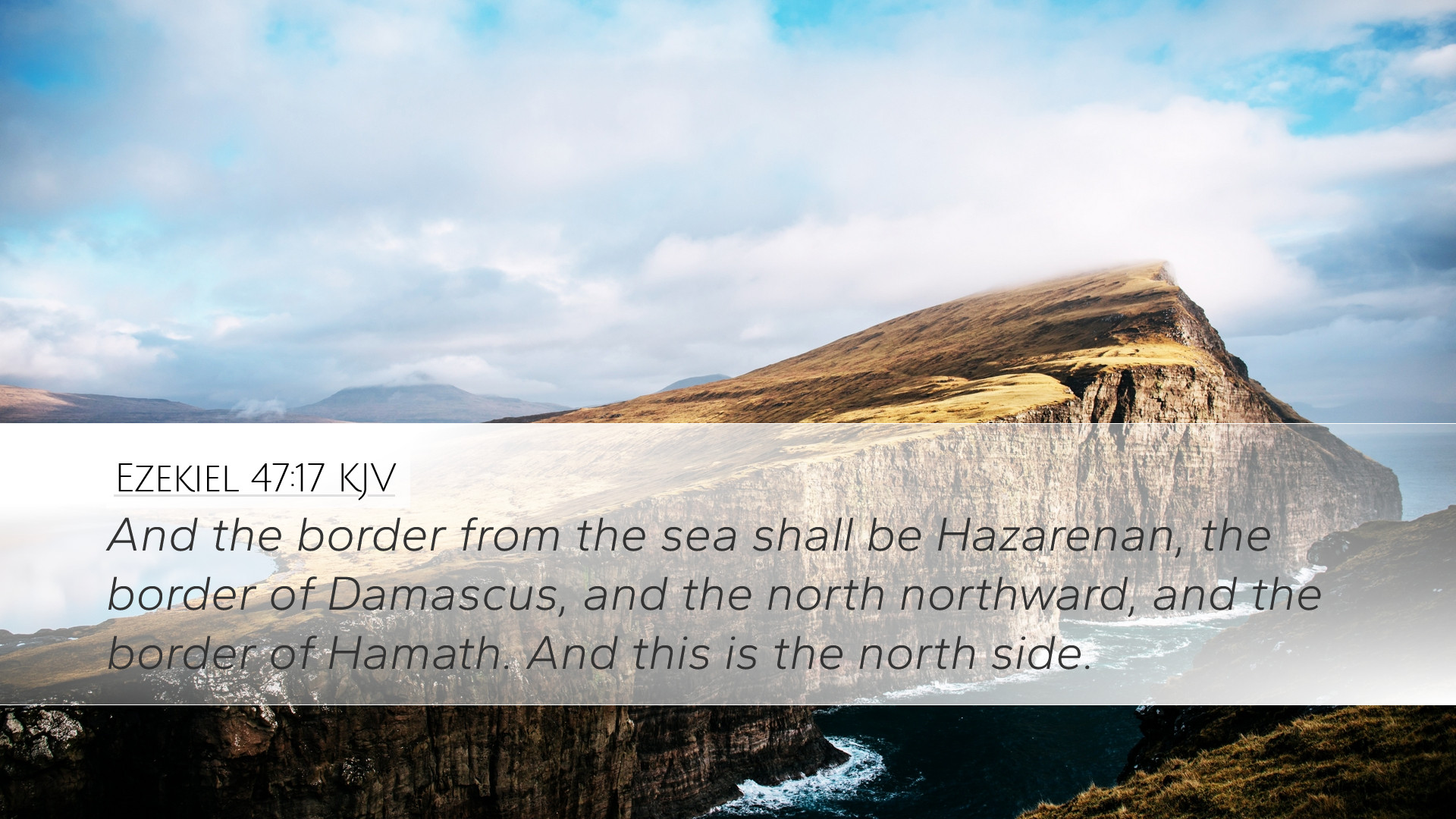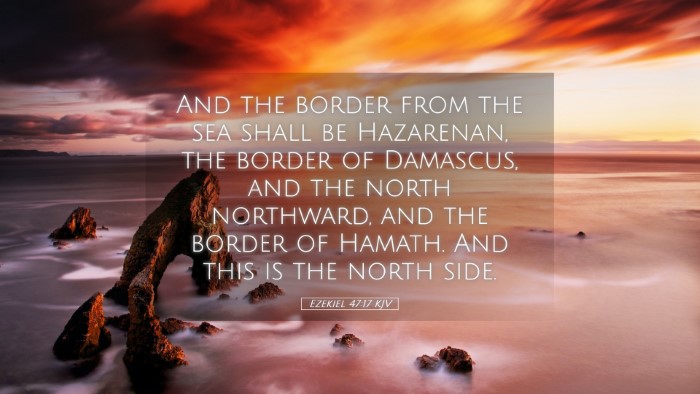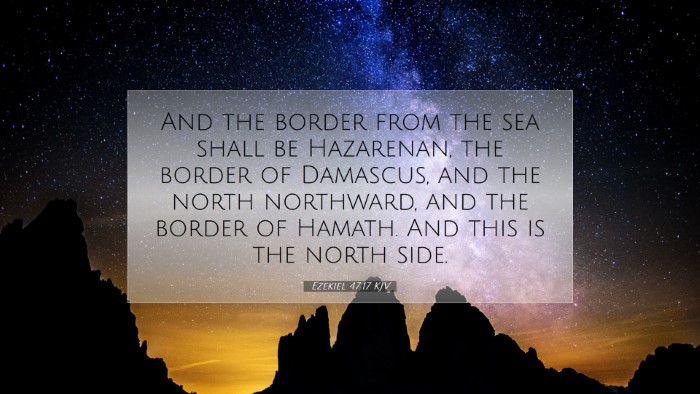Bible Commentary on Ezekiel 47:17
Verse Context: Ezekiel 47:17 states, "And the border from the sea shall be Hazar-enan, the border of Damascus, and the north northward, the border of Hamath; this is the north side." This verse comes in the context of Ezekiel’s vision regarding the future restoration of Israel, detailing the allocations of land among the tribes.
Introduction
The prophetic imagery presented in Ezekiel serves not only as a historical reflection but also as a theological construct shaping the eschatological expectations of God’s people. This commentary synthesizes insights from notable public domain commentaries, seeking to draw out the implications for pastors, scholars, and students of the Bible.
Historical and Geographical Context
The mention of "border from the sea" to "Hazar-enan," and "the border of Damascus" carries significant historical weight. Ezekiel speaks to the northern edge of the land promised to Israel. Here, the prophetic vision aligns tightly with the historical boundaries acknowledged during various reigns, especially that of David and Solomon.
- Hazar-enan: This site is often interpreted as a frontier settlement with deep connections to Israel’s identity and land inheritance.
- Damascus: As an influential city, Damascus signifies both a challenge and a potential for diplomatic engagement in the region.
- Hamath: Hamath denotes a historical and strategic city that functioned as a vital point in the north, symbolizing strength and a buffer against external threats.
Theological Implications
This passage is not merely a cartographical description but also serves theological purposes:
- Divine Sovereignty: The precise delineation of borders illustrates God’s sovereignty over Israel's future and the unfolding of His promises.
- Restoration and Hope: The vision of land restoration illustrates God’s intent to restore not just the physical land but the spiritual condition of His people.
- Covenant Faithfulness: The distribution of land among tribes reflects God’s faithfulness to His covenant promises to Abraham, Isaac, and Jacob.
Commentary Insights
Matthew Henry's Perspective
Matthew Henry emphasizes the significance of borders as symbols of both identity and heritage. He notes that this delineation ensures that the tribes understand their allotment, which is essential for their unity and function as a collective entity. The careful specification reinforces the idea that God not only desires the establishment of borders but also a communal identity rooted in divine order.
Albert Barnes' Observations
Albert Barnes further explains the geographical implications, indicating that these boundaries would provide both physical security and spiritual renewal for the Israelites. He highlights that the northward boundary represents a reminder of God’s ultimate control over areas that were previously hostile, as well as the promise of victory. Barnes interprets this passage as a message of hope, foreshadowing the era when Israel will enjoy peace and restoration.
Adam Clarke's Interpretations
Adam Clarke evaluates the textual details and variations among translations, stressing the importance of understanding these borders within the larger narrative of Ezekiel's prophecies. He proposes that such details underscore God’s meticulous plan for the land, which flows from His character as a God of order and purpose. Clarke also reflects on the spiritual implications, suggesting that the land symbolizes the fullness of life in divine fellowship, which believers can currently experience even amidst their dispersed condition.
Practical Applications
For pastors and theologians, the commentary on Ezekiel 47:17 facilitates a robust understanding of the interplay between God’s sovereignty and human experience. Several practical applications emerge:
- Community Identity: The delineation of borders serves as a call for believers to embrace their identity as part of God's covenant community.
- Hope in Restoration: This passage encourages the faithful to maintain hope for restoration, emphasizing that God’s plans include both physical and spiritual renewal.
- Educational Opportunity: Teaching on the Old Testament prophecies can enrich congregational understanding of God’s faithfulness through time.
Conclusion
Ezekiel 47:17 provides a rich tapestry of meaning that extends beyond the geographical to encompass profound theological truths about identity, hope, and divine sovereignty. By synthesizing insights from Matthew Henry, Albert Barnes, and Adam Clarke, we gain a multifaceted perspective that encourages ongoing exploration of God's word. In meditating on this prophetic vision, believers are invited to draw parallels to their own lives, contemplating God’s faithfulness and the hope found in His promises.


